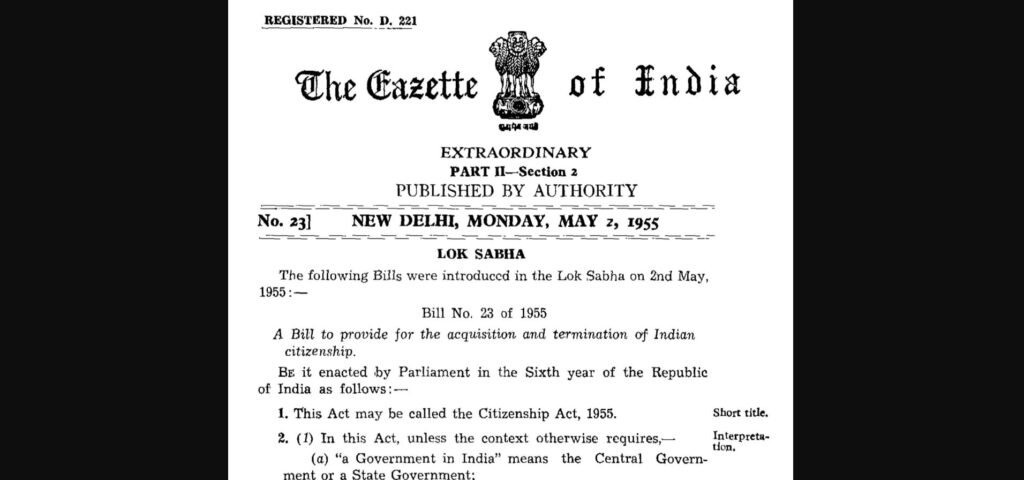On October 17, 2024, the Supreme Court of India delivered a verdict, upholding the constitutionality of Section 6A of the Citizenship Act, 1955, in a 4:1 majority decision. This ruling has significant implications for Assam and the broader discourse on citizenship and immigration in India. Let’s break down the key aspects of this decision and its context.

What is Section 6A of the Citizenship Act?
Section 6A is a special provision within the Citizenship Act, 1955, which was inserted following the Assam Accord signed on August 15, 1985. The Assam Accord, a Memorandum of Settlement between the then Rajiv Gandhi government and representatives of the Assam Movement, which emerged during and after the Indo-Pakistan War of 1971. Under Section 6A, immigrants who entered Assam between January 1, 1966, and March 25, 1971, and were “ordinarily resident” in the state, were granted Indian citizenship. However, those who entered during this period were initially denied the right to vote for ten years.
The Verdict of the Court
The five-judge Constitution Bench, headed by Chief Justice of India (CJI) D.Y. Chandrachud, delivered the verdict. Justice Surya Kant authored the lead majority opinion, while the Chief Justice provided a concurring judgment. In contrast, Justice J.B. Pardiwala conflicted with the verdict, declaring the provision unconstitutional with a prospective effect.
Majority Opinion led by Justice Kant
The majority opinion, led by Justice Kant, showcased the principle of fraternity embedded in the Constitution. The court held that the mere presence of diverse ethnic groups within a state does not, in itself, constitute a violation of Article 29(1) of the Constitution, which protects the interests of minorities. Justice Kant asserted that Section 6A embodies the “spirit of fraternity” and promotes the idea of “live and let live”.

Conflicting Opinion of Justice Pardiwala
Justice Pardiwala, in his dissent, argued that while Section 6A may have been constitutionally valid at the time of its enactment, it has become “unconstitutional” over time. He raised concerns about the discriminatory nature of the provision and its impact on the indigenous population of Assam.
Implications for Assam
The Supreme Court’s ruling is likely to have a significant role in Assam’s National Register of Citizens (NRC) exercise. The NRC aims to identify and document genuine Indian citizens in Assam, distinguishing them from illegal immigrants. The court’s decision to uphold Section 6A means that immigrants who entered Assam during the specified period will continue to be recognized as Indian citizens. Complications on NRC may rise due to this decision.

Conclusion
The Supreme Court’s decision to uphold Section 6A of the Citizenship Act, 1955, is a significant development for Assam with a room for broader discussions on citizenship in India. The judgment reflects the court’s commitment to follow the principles of fraternity and equality while navigating the complexities of immigration and national identity. As the debate continues, it is not so easy to find a balanced approach that respects the rights of all individuals involved.
